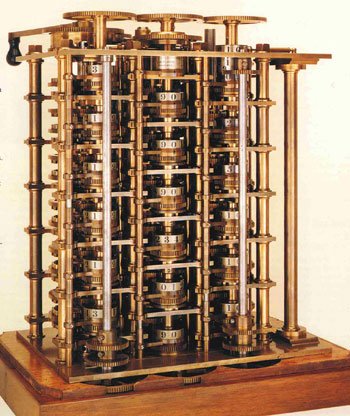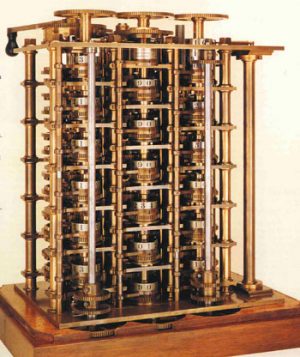harpsichord


I find the sound of a harpsichord (cravo in Portuguese – a word that is also used for the carnation flower and cloves – perhaps some kind Portuguese speaker could explain this), and other related instruments such as spinets and virginals, exquisite – though prolonged listening to it can become a tad wearing.
Recently, at night in a tent on the shoulder of a mountain beside a ruined Roman fort (nothing wrong with setting the scene! *grin*), I listened to a harpsichord piece by Rameau very LOUD. The metallic, machine-like quality of the music blew me away. If you think of Babbage and his difference engine rather than bewigged men in frock coats, then it becomes a sort of steampunk cybernetic music.
No doubt there were many reasons why the harpsichord was abandoned for the piano, however, one of those was volume – a problem that has been eliminated by modern amplification. Another reason is that harpsichords are unable to produce variations in loudness – pianos can (thus the term piano forte soft loud). My understanding is that this was considered essential to convey emotion. This may have led to some of the excesses of sentimentality of the Romantic period that I personally dislike.
A harpsichord is in effect a digital instrument – while the piano is analogue. It is interesting that the harpsichord only came back into favour in the early 20th century as a result of champions like Wanda Landowska. That this coincided with the advent of computers seems to me rather interesting. Perhaps the harpischord is more of a 21st century instrument than is the piano?
(Here are some examples, Skip Sempé playing Scarlatti, the wondrous Rameau and Royer’s exciting March of the Scythians)
How ’bout something more recent? 😛
Nightwish’s “Fantasmic” opens with (digital) harpsicord, here.
*grin* you’re SUCH a goth!! :OP
Oh, my, you’ll have to file a complaint at the Guild for Dignified Readerships of Dignified Authors *grin*
yes, well it is true that we are both exceedingly dignified…. :OP
Well being porguese i thoght i could try to explain, although i don’t know much about it, except, that when portuguese explorers got to india, they found that the blooming cloves, looked very much like carnations… Regarding the instrument name, well the way i see it, is that somewhere along the way the original “clavicembalo” (in it’s iatlian form), became “aportuguesado” into cravo…
I’m sure that someone, more scholared than me, knows the right answer for that one…
That said, i too really like the sound of cravo, and some of the best work for me is found from the pen of british composer Henry Purcell, and of course Johann Sebastian Bach.
hmmm… don’t think I’ve ever heard any harpsichord by Purcell… though Bach of course. There is some lovely music written for a virginal by the English composer Byrd…
in purcell’s music it is almost allways found in chamber music or sacred.
Allways as a source of rithm, and sometimes very subdued…
Well, as for the instrument, wikipedia says that: “Cravo é a designação dada a qualquer dos membros de uma família europeia de instrumentos musicais de tecla” (your “harpsichord”).
Then you have the word “cravo” for the flower, “carnation” in English.
You also say “Cravo-da-índia”, which is “clove” in English…
We are just very thrifty in terms of words. One can sometimes mean many things… But the same happens in English in many cases!
ah, I see “cravo-da-india”… :O)
The only harpischord I like is the one straddled by Tori Amos!
Normally it only brings flittery-fingered foppery to mind – Amadeus and his powder wigged shrill laughing!
😉
:O) of course this is the image given to the instrument – nevertheless, it is an exquisite instrument with some exceptionally beautiful music written for it… I don’t know how to take this further except by giving access to some example tracks… but how to do this without becoming a digital pirate? hmmm….
aha! A track on youtube here (and on my facebook account)…
It’s the hurdy gurdy for me, mate! Away with your flittery, note-diarrhea instrument!…
and what’s wrong with the hurdy gurdy…?